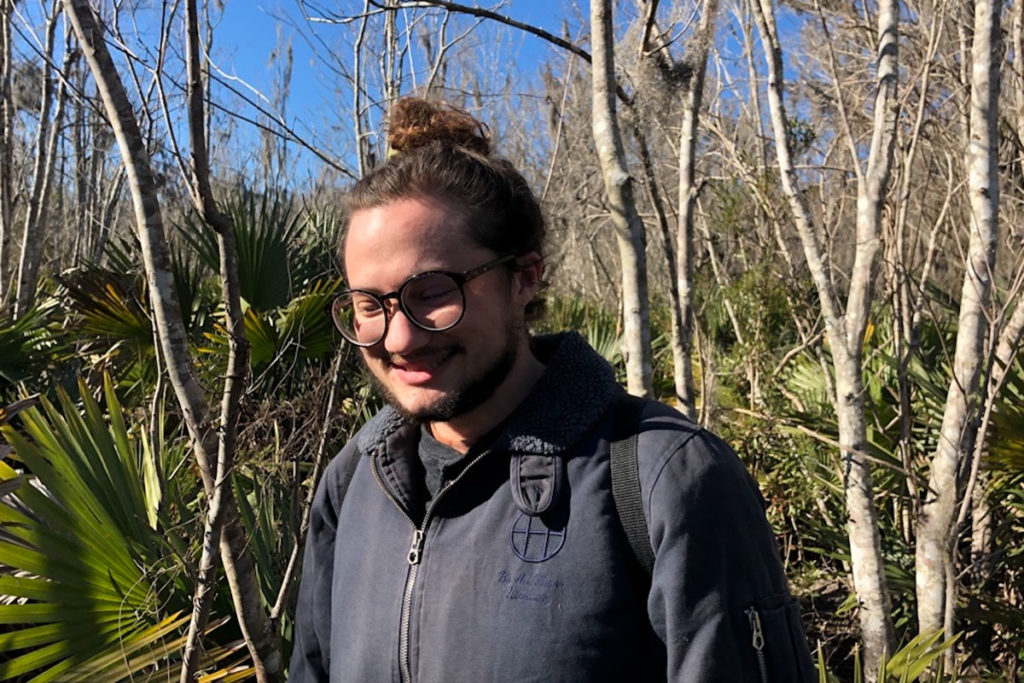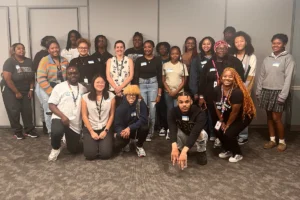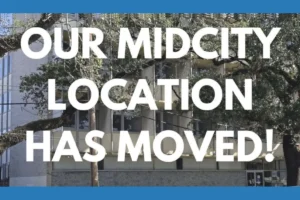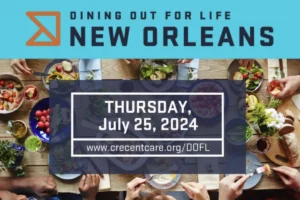Home »

A Love Letter to Trans Communities
As a Gender Services Patient Navigator, each morning I wake up and wonder what complications that particular day will hold for my trans and nonbinary clients. Will our patient who has worked for years saving up for their gender-affirming surgery be able to schedule a consult appointment for the procedure? Will the young person calling me to start gender-affirming hormone therapy have supportive parents backing them? How many clients will experience discrimination today at their local pharmacy, blood testing lab, DMV, urgent care, or medical specialist’s waiting room? Will our Gender Clinic client’s insurance deny coverage of their necessary healthcare?
On this Trans Day of Visibility (TDoV), I am holding the width and depth of both trauma and joy, grief and gaiety, swimming in my community’s collection of shared experiences. I am a New Orleanian who left my city for college, eventually both coming out as trans and beginning my own personal transition in the Northeast. While imperfect and with their own room for growth, there were abundant resources for me and my trans peers. Since moving home and serving other trans and gender non-conforming people through CrescentCare’s Gender Clinic, harm reduction programming with our New Orleans Syringe Access Program, and HIV/HCV testing with our Prevention department, I have heard so many stories from my clients detailing systemic barriers to accessing basic, vital care. Structural gatekeeping and interpersonal human rights violations are not the outliers for my people in the American South – they are the norm.
What is visibility? Oxford tells us visibility is the state of being able to see or be seen. I am personally called to a definition a bit farther down: the distance one can see as determined by light and weather conditions. How might our community experience visibility with such a cloudy climate? It is hard to buoy oneself in rough waters, especially for my people in the rural South, especially for my Black trans sisters, especially for my incarcerated trans family, especially for my trans siblings seeking safety and asylum at our borders.
May this day of bearing witness encompass a celebration of our safety, freedom, growing mutual aid organizing, movements for collective liberation, and most urgently, call us into sustained, focused action. May we each turn to the trans and nonbinary people in our communities who have been doing the work and assess how we may better support their efforts. May we accompany a friend to the DMV who is there to legally change their name and gender marker. May we refer a friend to the NOLA Bound: Binder Exchange at CrescentCare for a free, safe chest-binding garment. May we build a relationship with the houseless trans person living on our block. May we reach out to our incarcerated trans siblings by writing letters — letting them know they are not alone, we are fighting for them, and we will be here to receive them with love and material support when they are released.
Last night, Senator Michael “Big Mike” Fesi of Houma filed Senate Bill No. 104, an attack on trans youth. The proposed transphobic legislation would prevent trans minors from accessing affirming care without explicit parental consent, including for counseling. This is only the latest in a series of bad bills sweeping across the South, working to violate the human rights of a diverse community that many legislators have no relationship to. While there a movement across Louisiana pushing Big Mike to withdraw SB 104 (by calling his office, the number for which can easily be found on his website), I sit here on the morning of TDoV wondering how trans youth across the state will internalize the information that their rights, and their ability to make decisions about their own healthcare, may be suddenly stripped away. Navigating this country as a young trans person is hard enough without legislation dictating the limits of your bodily autonomy.
In closing, I will say to my young trans folk: we got you. We will fight for you. To my trans elders, on this TDoV, I say to you: thank you. Your stories have shown us how we got here, uplifted the legacies of those we have lost, and your continued organizing allows our community to move forward stronger, braver, and deeply rooted in our power. To my trans and nonbinary community across the South: we got us. Take care of yourself, ask for help when you need it, and trust we will show up for each other in the struggle for equity, justice, and liberation. To my gender diverse community members in the process of naming who you are to those around you: we see you. You have a huge group of people backing you and we affirm your magic. And finally, to all my trans family across the globe, today and all days: I love you.
Published: Mar 31, 2021



